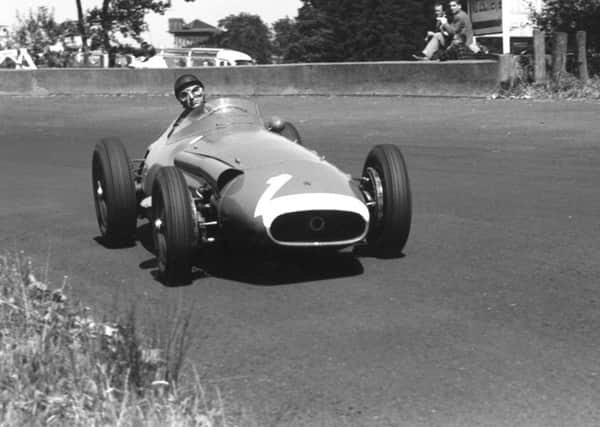Who is the greatest Formula One racing car driver of all time?


Dr Andrew Bell, of the Sheffield Methods Institute, used statistical analysis to work out who the sport’s best driver is by focusing on their talent, rather than because they have a good car.
Without considering the impact of his team, the greatest driver of all time in terms of most race wins would be Michael Schumacher.
Advertisement
Hide AdAdvertisement
Hide AdBut the study found that once the effect of his team is taken out of the equation, legendary racer Fangio claims the top spot, followed by Alain Prost in second place and Fernando Alonso in third.
Based on this criteria Schumacher drops to ninth place – although his ranking is dragged down by his post-retirement performances in 2010-2012 when he was largely outperformed by his Mercedes teammate Nico Rosberg. If his pre-retirement career is considered on its own, he would be ranked third.
Of those drivers still racing, Fernando Alonso is the highest ranked with both him and Sebastian Vettel ahead of reigning world champion Lewis Hamilton.
The study, published in the Journal of Quantitative Analysis in Sports, also found that teams matter roughly six times more than drivers when it comes to success in F1.
Advertisement
Hide AdAdvertisement
Hide AdDr Bell’s study found that the importance of the teams themselves has increased over time, but appears to lessen on street circuits, where the individual driver’s skill plays a greater role.
On the face of it Fangio, who died in 1995, was an unlikely sporting star with F1 success coming relatively late in life - he was in his forties before he won his first world title in 1951.
Nevertheless, the Argentine set records so immense that, in percentage terms, they are unlikely to be surpassed.
Fangio - nicknamed “Maestro” because of his prowess on the track - competed in 51 Formula 1 races, of which he won 24, set 28 pole positions and 23 fastest laps. In seven full F1 seasons during the 1950s, he won five world championships.
Advertisement
Hide AdAdvertisement
Hide AdDr Bell said: “The question ‘who is the greatest F1 driver of all time’ is a difficult one to answer, because we don’t know the extent to which drivers do well because of their talent or because they are driving a good car. The question has fascinated fans for years and I’m sure will continue to do so.
“Our statistical model allows us to find a ranking and assess the relative importance of team and driver effects, and there are some surprising results.
“For example the relatively unknown Christian Fittipaldi is in the top 20, whilst three time champion Niki Lauda doesn’t even make the top 100. Had these drivers raced for different teams, their legacies might have been rather different.”
He added: “A similar model could be used to answer a variety of questions in society – for example, how much do individuals, teams and companies affect worker productivity or how much classes, schools and neighbourhoods affect educational attainment.”